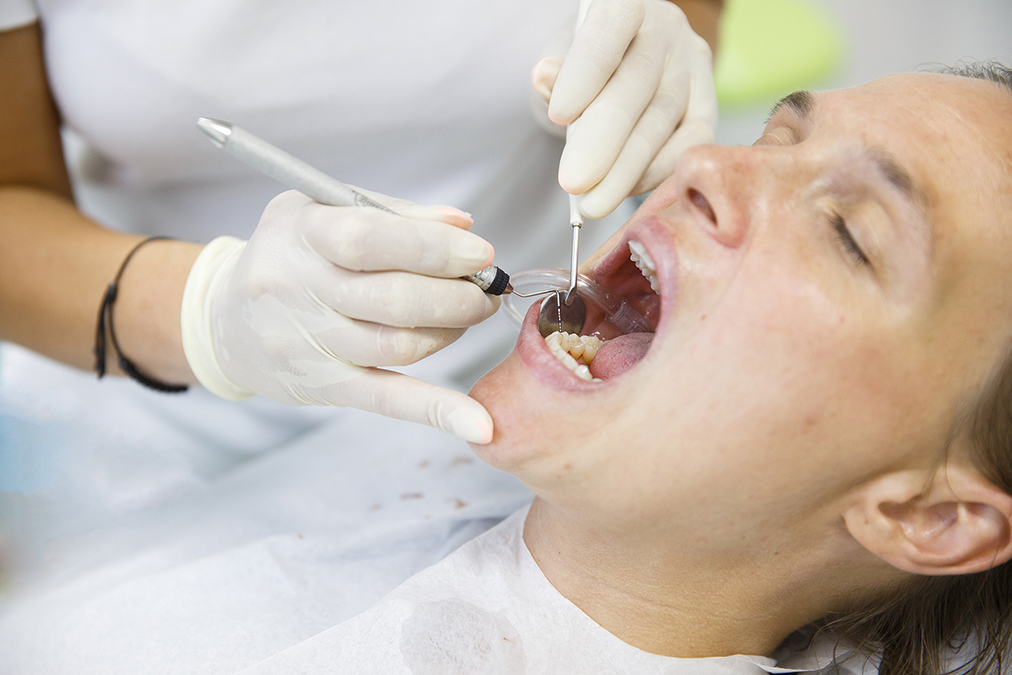 Imagine having a heart attack, but your body struggles to repair the damage because of bad breath, putting you at great risk of a second heart attack… this time lethal.
Imagine having a heart attack, but your body struggles to repair the damage because of bad breath, putting you at great risk of a second heart attack… this time lethal.
Sounds strange that your gums can cause this, doesn’t it?
But this is exactly what happens if you have gum disease. That’s according to a new study published in the International Journal of Oral Science.
Porphyromonas gingivalis (P.g.) is known for causing gum disease, but this study found that it can interfere with the heart muscle’s ability to repair itself after a heart attack by disrupting a critical cellular process called autophagy.
Autophagy is a kind of cellular “cleanup” mechanism that removes damaged components, allowing cells to function properly and recover from injury.
When this process is hindered, it can lead to increased heart tissue damage and a higher risk of heart rupture following a heart attack.
To prove this, the researchers did two studies.
In the first, they obtained heart muscle cells from newborn rats. Cardiomyocytes are the cells responsible for the contractile function of the heart, allowing it to pump blood throughout the body.
In the second, they used mice that had had heart attacks.
Through these trials, they noticed that P.g. was definitely responsible for inhibiting the repair of heart muscle cells.
-
1. P.g. infection increased heart cell size by 20% compared to non-infected cells.
2. Mice with P.g. infection had 30% lower survival rates after a simulated heart attack than those without the infection had.
But then the researchers went further. In previous studies, other scientists had found that the most harmful enzyme released by P.g. was something called gingipains.
To check this conclusion, the authors of this study modified P.g. genetically so they could no longer produce gingipains. And, promptly, the P.g. was no longer a heart health risk.
This doesn’t help us, of course, since normal P.g. does release gingipains.

 Overcoming IBD
Overcoming IBD Multiple Sclerosis
Multiple Sclerosis Banishing Bronchitis
Banishing Bronchitis Gum Disease Gone
Gum Disease Gone Overcoming Onychomycosis
Overcoming Onychomycosis Neuropathy No More
Neuropathy No More The Prostate Protocol
The Prostate Protocol Brain Booster
Brain Booster
 Ironbound
Ironbound
 Solution for Shingles
Solution for Shingles
 The Bone Density Solution
The Bone Density Solution
 The Ultimate Healing Protocol
The Ultimate Healing Protocol
 The Parkinson's Protocol
The Parkinson's Protocol
 The Chronic Kidney Disease Solution
The Chronic Kidney Disease Solution
 Overthrowing Anxiety
Overthrowing Anxiety The Fatty Liver Solution
The Fatty Liver Solution The Hypothyroidism Solution
The Hypothyroidism Solution
 The End of Gout
The End of Gout The Blood Pressure Program
The Blood Pressure Program
 The Oxigized Cholesterol Strategy
The Oxigized Cholesterol Strategy
 Stop Snoring And Sleep Apnea Program
Stop Snoring And Sleep Apnea Program
 The Arthritis Strategy
The Arthritis Strategy The Vertigo & Dizziness Program
The Vertigo & Dizziness Program The 3-Step Diabetes Strategy
The 3-Step Diabetes Strategy Hemorrhoids Healing Protocol
Hemorrhoids Healing Protocol The Erectile Dysfunction Master
The Erectile Dysfunction Master Weight Loss Breeze
Weight Loss Breeze The IBS Program
The IBS Program The Insomnia Program
The Insomnia Program The Migraine and Headache Program
The Migraine and Headache Program The Neck Pain Solution
The Neck Pain Solution The Menopause Solution
The Menopause Solution The Ejaculation Master
The Ejaculation Master The TMJ Solution
The TMJ Solution The Acid Reflux Solution
The Acid Reflux Solution The Fibromyalgia Solution
The Fibromyalgia Solution The Psoriasis Strategy
The Psoriasis Strategy